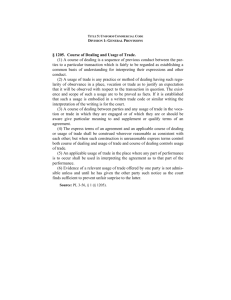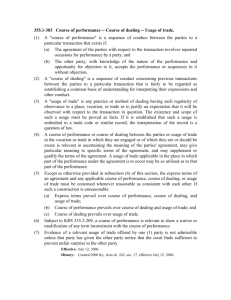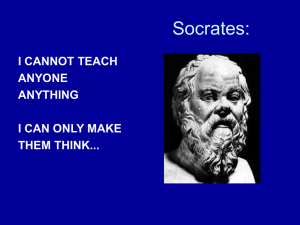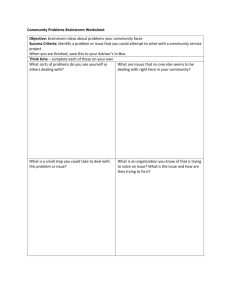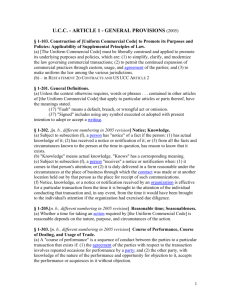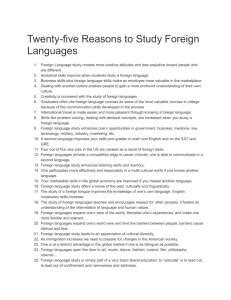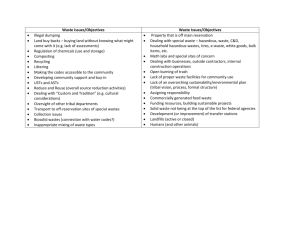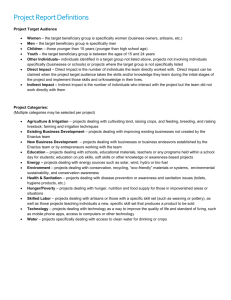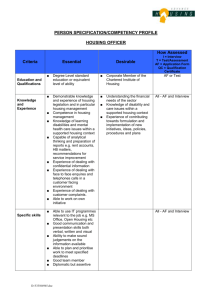§ 1-205. Course of Performance, Course of Dealing and Usage of
advertisement
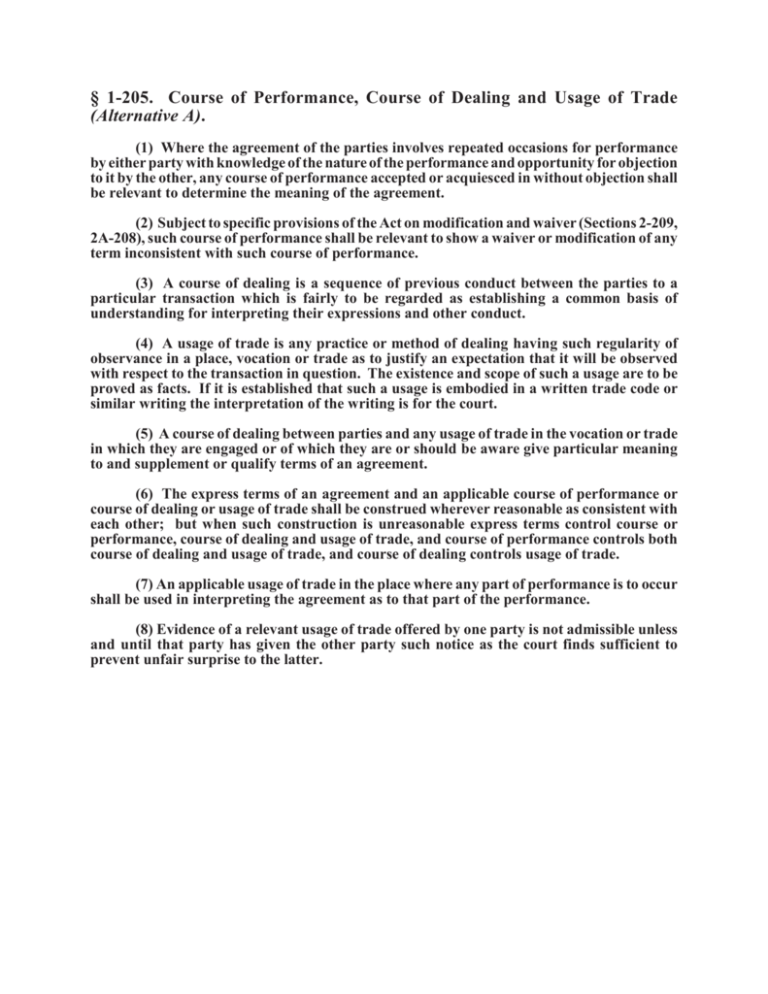
§ 1-205. Course of Performance, Course of Dealing and Usage of Trade (Alternative A). (1) Where the agreement of the parties involves repeated occasions for performance by either party with knowledge of the nature of the performance and opportunity for objection to it by the other, any course of performance accepted or acquiesced in without objection shall be relevant to determine the meaning of the agreement. (2) Subject to specific provisions of the Act on modification and waiver (Sections 2-209, 2A-208), such course of performance shall be relevant to show a waiver or modification of any term inconsistent with such course of performance. (3) A course of dealing is a sequence of previous conduct between the parties to a particular transaction which is fairly to be regarded as establishing a common basis of understanding for interpreting their expressions and other conduct. (4) A usage of trade is any practice or method of dealing having such regularity of observance in a place, vocation or trade as to justify an expectation that it will be observed with respect to the transaction in question. The existence and scope of such a usage are to be proved as facts. If it is established that such a usage is embodied in a written trade code or similar writing the interpretation of the writing is for the court. (5) A course of dealing between parties and any usage of trade in the vocation or trade in which they are engaged or of which they are or should be aware give particular meaning to and supplement or qualify terms of an agreement. (6) The express terms of an agreement and an applicable course of performance or course of dealing or usage of trade shall be construed wherever reasonable as consistent with each other; but when such construction is unreasonable express terms control course or performance, course of dealing and usage of trade, and course of performance controls both course of dealing and usage of trade, and course of dealing controls usage of trade. (7) An applicable usage of trade in the place where any part of performance is to occur shall be used in interpreting the agreement as to that part of the performance. (8) Evidence of a relevant usage of trade offered by one party is not admissible unless and until that party has given the other party such notice as the court finds sufficient to prevent unfair surprise to the latter. § 1-205 2 October 1996 Meeting § 1-205. Course of Performance, Course of Dealing and Usage of Trade (Alternative B). (1) A “course of performance” exists when: (a) the agreement of the parties involves repeated occasions for performance by a party; (b) that party performs [on one or more occasions]; and (c) the other party, with knowledge of the nature of the performance and opportunity for objection to it, accepts the performance or acquiesces in it without objection. (2) A “course of dealing” is a sequence of previous conduct between the parties to a particular transaction that is fairly to be regarded as establishing a common basis of understanding for interpreting their expressions and other conduct. (3) A “usage of trade” is any practice or method of dealing having such regularity of observance in a place, vocation or trade as to justify an expectation that it will be observed with respect to the transaction in question. The existence and scope of such a usage are to be proved as facts. If it is established that such a usage is embodied in a written trade code or similar writing the interpretation of the writing is for the court. (4) Any course of performance or course of dealing between the parties or usage of trade in the vocation or trade in which they are engaged or of which they are or should be aware (i) is relevant in ascertaining the meaning of the parties’ agreement, (ii) may give particular meaning to specific terms of the agreement, and (iii) may supplement or qualify the terms of the agreement. A usage of trade applicable where only part of the performance under the agreement is to occur may be so utilized as to that part of the performance. (5) The express terms of an agreement and any applicable course of performance, course of dealing or usage of trade shall be construed wherever reasonable as consistent with each other but when such construction is unreasonable: (a) express terms control course of performance, course of dealing and usage of trade; (b) course of performance controls course of dealing and usage of trade; and (c) course of dealing controls usage of trade. (6) Notwithstanding subsection (5), and subject to specific provisions of this Act on modification and waiver (Sections 2-209, 2A-208, 2B-303), a course of performance is relevant to show a waiver or modification of any term inconsistent with such course of performance. (7) Evidence of a relevant usage of trade offered by one party is not admissible unless and until that party has given the other party such notice as the court finds sufficient to prevent unfair surprise to the latter. § 1-205 3 October 1996 Meeting REPORTER’S NOTES a. Alternative approaches. Alternative A is an amalgamation of current UCC section 1-205 and 2-208, as suggested by the ABA Task Force. Alternative B slightly reorganizes the combined section and slightly modifies the articulation of the course of performance rules to fit more comfortably with the approach of the section. There are also slight modifications to be more consistent with the definition of “agreement” in current section 1-201(3). b. Possible side effects of incorporating course of performance into Article 1. Incorporation of course of performance into Article 1 will require close examination of at least two issues. First, a course of performance that might otherwise create a defense to the obligation of a party to an instrument should not be available to assert that defense against a holder in due course who took the instrument without notice of the course of performance. A comment in this section or in section 3302 may be sufficient to make this point, but it is possible that some statutory tweaking may be required. Second, in light of the rule that course of performance may be relevant to establish a waiver or modification, consideration should be given to whether those concepts should be articulated in Article 1 or, rather, if the current treatment of these concepts in Articles 2, 2A and 2B is sufficient.
